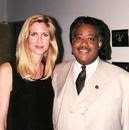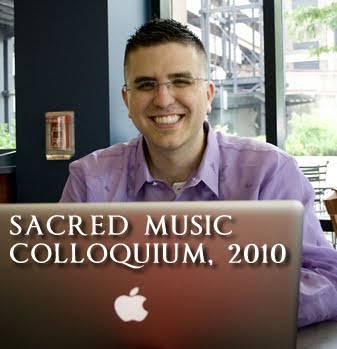
What I’ve found ironic and interesting is that both here and on the MS Forum we’ve engaged in a fair amount of chatter about……what? Chant? Polyphony? Orchestral Masses? Nope, the ironic part is that due to the “FIRST THINGS” Casey Kasem Top Ten article, we’ve bandied about a large amount of discussion about so-called “Contemporary Worship Music.” As regards that specific article, I’ve said my peace.
However, in light of continued discussion in other threads, I’d like to offer some suggestions for DM’s who must wrestle with the yearly concerns of subscription missal/hymnal publications, and also who are charged with overseeing the programming responsibilities of subordinate musical personnel, such as organists,cantors, ensembles and choirs, to whom license is provided to make their own weekly decisions as to repertoire.
First of all, as a relatively still new member of CMAA, (with four decades of service under a very oversized belt) I absolutely recommend those obvious strategies outlined by Dr. Mahrt, Fr. Keyes, Jeffrey Tucker, Mary Jane Ballou and others have addressed at colloquia, intensives and in “Sacred Music” articles. Namely, hold sessions for musicians and other interested parties (like PRIESTS) that clarify the necessity of familiarization with liturgical legislative documents; prioritize and disseminate information about the role of the proper processional antiphons; clarify the variety of roles that the constituent parties engage in at Mass, such as the responsibility of celebrants to sing their orations versus recitation whenever possible, or which portions of the liturgies have options as to who, what, where, why and how a choir or cantor should be the primary performer of select “movements” and which demand total active participation by the whole congregation. This is Liturgy 101. We can all think of other aspects that must be in place prior to engaging your colleagues with your expertise and direction as advice worthy of their consideration to put into practice.
In another thread I mused that there’s another dimension in the universe where we DM’s could dial in our hymnal content to THE BIG THREE and they would obligingly, gleefully print our boutique annual hymnals. Well, that’s likely not going to happen soon. So, if you are a DM or responsible for choosing repertoire from a subscription or seasonal newsprint hymnal I suggest you get used to this notion: You must plow through that book with a fine toothed comb not only when the first perusal copy hits your mailbox, but virtually each week. Much that I’ve garnered through anecdotal and direct observation is that second-tier music leadership relies upon- A. a personal stable of favorites that they simply trust will always be in each year’s issue; and B. the publishers’ shill periodicals that enable the musician to do the Chinese Restaurant menu choice method of programming. Neither of those strategies benefits a parish’s growth towards enhanced music that is sacred, beautiful and universal.
So, in my case, two years ago, when our parish merged with three others, I created a basic informational tool for my musical corps- a spreadsheet review of literally every enumerated musical item in the OCP Breaking Bread Hymnal. In addition to the fields of title, composer/hymn tune, seasonal/general assignment, etc., I applied MY own overall grade of worthiness to each selection using the A to F curricular adjudication. I then had another field in the spreadsheet if I felt a need to explain the grade. If I wanted to push a tune with an A grade, I would give short phrase reasons, the same for poorly graded pieces. This is a fair amount of work, but it accomplishes a few obvious goals, and some others that are oblique. Obviously, such a document provides your crew with benchmarks that clearly state how the DM values or regards the hymnal content, piece by piece and in toto. If I grade “Blest Be the Lord” as a “D” with a small mention that its genre is dated or simply hokey, a cantor at least knows that if s/he employs it, it is not in concert with what I consider ideal. A more subtle benefit is that by providing a comprehensive, simple review, a DM is communicating to all, “I know this book and this publisher backwards, forwards and in my sleep. Elaine R. McQueeny and Fred Moleck have their tents in Portland and Chicago. Charles’ office is next to the church.” All the CD/Itunes recordings done in studio or cathedral environments for demonstration purposes have all sorts of lipstick and façade product slathered within that won’t be there with the lonely guitar player or lead-sheet pianist looks at a cantor’s choice and says “How does this go?” Your musical staff must know that you know your stuff and are willing to place a tangible value upon some of their “favorites” that will discomfort them, or more hopefully encourage them to expand their “stable.”
Another strategy is scheduling parish reading sessions open to musical staff and parishioners in general. Scheduling is a real problematic issue, not just because of personal issues, but seasonal demands. But, OCP (for example) ships in annual hymnals well in advance of Advent I. Even if you have tremendous rehearsal or administrative demands preparing for Advent/Christmas/Epiphany, I believe the DM review process can be accomplished as soon as perusal copies come in advance of the shipment. And then try to schedule the public reading session for items in the mid-autumn with about an hour and a half of selections that are new to the yearly issue and most worthy of consideration; it doesn’t matter what genre of style. Worthiness (sacred, universal and beautiful) is the highest priority. If this cannot be accomplished in autumn, then it must happen in the first weeks of Ordered Time prior to Lent. I also recommend that you use the most basic of accompaniment instruments, no frills in the exposition. Personally, I never listen to demo recordings. I don’t ever read the keyboard accompaniment scores. I make my decisions after simply auditioning text and melody alone, period. So, the DM can then determine whether it is most appropriate for a piece to be accompanied solely by an organ, a piano, a guitar or combination of those three.
Then, after you’ve premiered these, your selections, poll your musical personnel as to which selections of their preference they would like “demonstrated” at a subsequent reading session. And have another session, perhaps post Pentecost through Trinity Sundays into summer ordinary time.
In both types of reading sessions, it is of paramount necessity for the DM to articulate in much more detail the aspects of each selection that make it either worthy or unsuitable for common usage. If you are diplomatic, no one will huff and puff at these sessions over your pronouncements because time is at a premium. They want to get through reading all the items on your program. And, of course, within your explanations, there must be the constant and consistent threads of how each selection adheres to “the paradigm” in terms of theological orthodoxy, relationship to the psalter and to propers, aesthetic issues inherent in both text (“Yeah, Your Grace IS ENOUGH, yeah…) and music (Somos el Cuerpo de Cristo, Oob la dee, Oob la da, life goes on…..br*, oh nevermind, let’s not go there.) I’ll be doing my summer session soon, and one thing I will do is measure my own enthusiasm with my comportment. I will likely strive to deliver the direction of the session more with the quiet surety of Professor Mahrt, rather than the blowhard “Vince, the ShamWow Guy- You Gotta Hear Dis Great Song, You can’t live wit’out it!”
I’ll be doing my summer session soon, and one thing I will do is measure my own enthusiasm with my comportment. I will likely strive to deliver the direction of the session more with the quiet surety of Professor Mahrt, rather than the blowhard “Vince, the ShamWow Guy- You Gotta Hear Dis Great Song, You can’t live wit’out it!”
And remember rule number one: don’t talk too much. Keep them singing 95% of the time.
In the next installment of this article, I’ll demonstrate my approach to selecting pieces for reading sessions.







